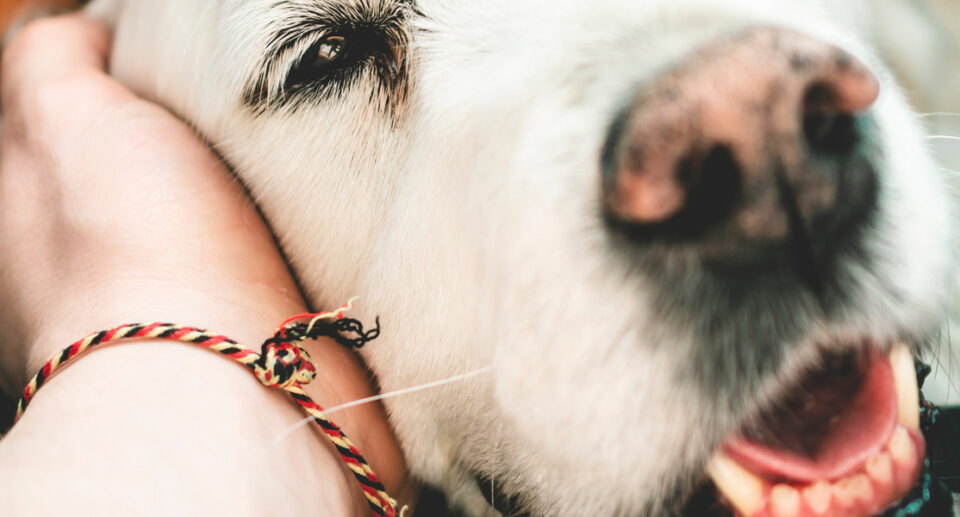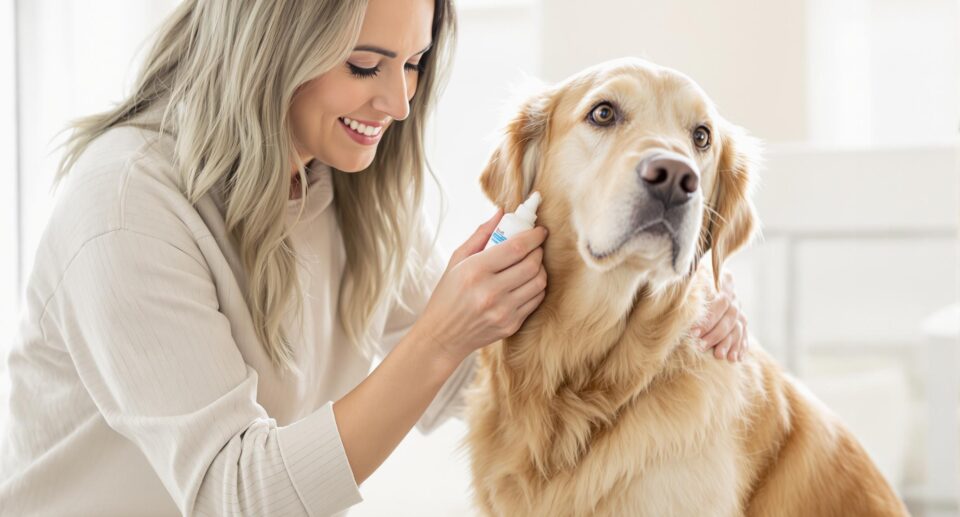How to Treat 5 Common Skin Diseases in Dogs

Skin disease is very common in pets. Pet skin disease may involve changes in your pet’s coat and the development of lesions, such as papules, pustules, crusting, and scaling. Varying amounts of pus and discharge may also be seen. Several types of skin medications are used to treat these conditions, including antibiotics, antifungal medications, anti-inflammatory medications, antihistamines, as well as medicated shampoos, dips and sprays. Nutritional supplements and fatty acids may also help manage many of these skin problems.
Hot spots
Hot spots are known as pyotraumatic dermatitis in dogs and cats, and typically involve the development of sudden acute localized inflammation of the skin that is often quite painful. The lesions often contain pus and discharge, with hair loss around the lesion. Hot spots may also occur on multiple areas of your pet’s body, but most commonly around the ears and flank regions. Many pets inflict self-trauma through excessive biting and itching, which often exacerbates the development of these lesions. Hot spots often develop because of an underlying flea bite allergy, inhalant/contact allergy, and/or food allergies. Pets with hot spots below the ears often have an ear infection present as well. Hot spots are typically treated by clipping the hair around the lesions and cleaning the eruption with a drying and/or antiseptic pet shampoo or soap. To prevent self-trauma, your veterinarian may prescribe injectable or oral steroids. Topical antihistamines or antibiotic sprays such as Betagen (for dogs) often help treat hot spots. Oral antibiotics may be needed to treat or prevent secondary bacterial infections. HomeoPet Hot Spots is an excellent natural remedy that may be worth trying in affected pets.
Atopic dermatitis (atopy)
Atopic dermatitis is an inflammatory skin condition in dogs and cats that results from inhalant/contact allergies. Examples of common allergens include molds, grasses, trees, ragweed, and pollens. Pets with atopic dermatitis will often excessively itch and lick at themselves. Common areas involved include the ears and feet, where secondary yeast and/or bacterial infections may develop, leading to odor, discharge, scabbing, and crusting of these areas. Many pets with atopic dermatitis rub their face and eyes as well. Hot spots may also develop due to acute allergic reactions. Pets with atopic dermatitis are also more likely to develop hives and raised eruptions than other pets. Lesions tend to be seasonal in many pets, due to the seasonal nature of many common allergens. Pets with atopic dermatitis are also likely to be prone to food allergies and flea bite allergies.
Atopic dermatitis is presumptively diagnosed based on the pattern of the skin lesions, as well as a history of your pet’s past seasonal skin problems. Blood and/or skin allergy testing can confirm diagnosis and medications such as Atopica for Dogs and Atopica for Cats may be prescribed by your pet’s veterinarian. Treatment of atopic dermatitis may involve steroid therapy, especially if the length of the itching season is not too long. Oral antihistamines such as Hydroxyzine HCl may also help in 20-50% of affected pets. Cyclosporine (Modified) Generic To Atopica may be useful as an alternative to long-term steroid use. Topical pet shampoo therapies help reduce contact with offending environmental allergens. Finally, allergy desensitization therapy may be tried on pets that have had allergy tests. Holistic treatment options include NAET therapy, which uses certain acupuncture points to desensititize pets to offending allergens.
Dry skin
Dry skin in pets can have many causes—from nutritional imbalances and deficiencies to various allergic skin disorders such as atopy, food allergies, and flea bite allergies. Even pets with digestive disorders or intestinal parasites may be more likely to develop dry skin. Pets with non-specific diseases of the liver, kidneys, or even cancer are also at increased risk of developing dry skin. Symptoms of dry skin include flaky skin or dandruff, as well as being more likely to have a shedding problem or hair loss than other pets. Pet shampoos and conditioners can help treat your pet’s dry skin. Epi-Soothe and Relief Shampoo are also two excellent shampoo products that can be used up to once to twice a week. Omega 3 fatty acid supplementation will often help when used long term.
Hair loss
Hair loss and excessive shedding can have many causes, including dietary factors and imbalances, as well as food allergies, inhalant/contact allergies, and/or flea bite allergies. External skin parasites such as mange or ringworm, as well as bacterial skin infections will typically cause problems with your pet’s coat. Pets with hormonal disorders of the thyroid gland and adrenal gland, metabolic diseases of the liver or kidneys, or pets with cancer may also develop problems with hair loss and excessive shedding. Symptoms include either patchy thinning of the hair coat, or more obvious, defined hair loss which may be generalized or localized. Very often there will be other secondary skin lesions as well including papules, pustules, crusting, scabbing, or discharge. Treatment will vary depending on the underlying cause. Products such as Shed Terminator Chews for Dogs or SHED-X Shed Control Pet Shampoo can help in pets with non-specific hair loss. Regular pet shampoo therapy, as well as nutritional supplements with digestive enzymes such as NaturVet Digestive Enzymes Plus Probiotic and Omega 3 fatty acids may also help when used long term.
Mange
There are two common types of mange seen in pets today. Demodectic mange is the most common type seen and is due to the overgrowth of this external skin parasite that is present in low numbers on normal pet skin. Due to genetic or other immune-deficiency factors, including immunosuppressive medical conditions and drugs, pets may develop demodectic mange typically as puppies and kittens, or as senior pets. Symptoms typically include localized hair loss, often on the extremities or face. While demodectic mange may be localized in a few spots in some pets, others will develop a more generalized form of infection, which can also be accompanied by secondary crusting, scabbing, discharge, and infection. Veterinarians typically diagnose demodectic mange by skin scrape and microscopic exam. Treatment may involve weekly to bi-weekly dips with a product such as Mitaban Dip (for dogs) or the use of Ivermectin and Milbemycin. Benzoal peroxide shampoo therapy with shampoos such as Oxydex often helps flush the mites from your pet’s hair follicles to allow for easier topical treatment.
Scabies mites are much less common, but may cause intense itching, especially around thinly haired areas of a dog’s body, including the ear lobes, elbows, hocks, and abdomen. Diagnosis is much more difficult, as these mites are difficult to find on routine skin scrapings. Treatment of scabies typically involves weekly Ivermectin treatment or the use of some topical products such as Frontline Plus. Demodectic mange is not contagious to other dogs or people, but scabies (sarcoptic mange) is contagious to other pets and people, so it is essential to treat all pets in the environment if scabies is suspected or diagnosed.





